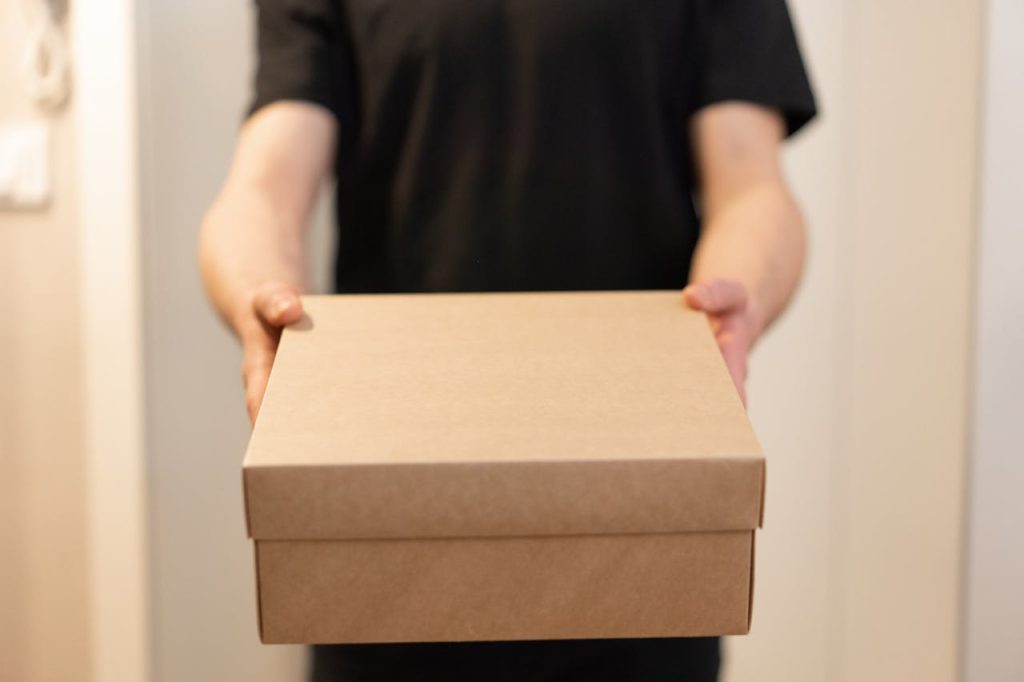
You check your phone and see a text: “Your package is waiting for delivery. Click here to reschedule.” Maybe you’re expecting something, or maybe you’re not. Either way, it’s easy to get curious. But that message could be the start of a scam that’s catching more people every day. Fake package delivery notices are everywhere now, and they’re not just annoying—they can cost you money, steal your information, and even put your identity at risk. This scam is growing fast because it preys on our habits. We order online, we expect packages, and we trust delivery companies. That’s why it matters. If you get one of these messages, knowing what to do can save you a lot of trouble.
1. How the Fake Package Delivery Scam Works
Scammers send texts, emails, or even leave voicemails saying you missed a delivery. The message looks like it’s from a real company—FedEx, UPS, USPS, Amazon, or DHL. There’s usually a link or a phone number. If you click the link, you might see a page that looks official. It asks for your address, credit card, or other personal details. Sometimes, it asks you to pay a small “redelivery fee.” Other times, it just wants your login info. The goal is always the same: get your information or your money. These scams work because they look real and catch you off guard.
2. Why This Scam Is Growing So Fast
Online shopping is at an all-time high. People expect packages all the time. Scammers know this. They use that expectation to trick you. The messages are easy to send in bulk, and they don’t need to be perfect. If even a few people fall for it, the scam pays off. The Federal Trade Commission reports a sharp rise in phishing scams tied to package delivery. The more we shop online, the more these scams will keep coming.
3. Signs You’re Dealing with a Fake Package Delivery Notice
There are a few things to watch for. First, check the sender’s address or phone number. If it looks odd or generic, that’s a red flag. Real delivery companies don’t use random numbers or email addresses. Second, look at the link. If it doesn’t match the company’s real website, don’t click it. Third, the message might have spelling mistakes or weird grammar. Real companies check their messages. And if the message asks for payment or personal info right away, that’s a big warning sign. Delivery companies don’t ask for money to reschedule a package.
4. What Happens If You Click the Link
If you click, you might land on a fake website. It could ask for your name, address, credit card, or even your Social Security number. Sometimes, just clicking the link can install malware on your device. That malware can steal your passwords, track your activity, or lock your files for ransom. If you enter your info, scammers can use it to steal your identity or make charges on your card. The damage can be big and hard to fix. That’s why it’s important to stop before you click.
5. How to Protect Yourself from Fake Package Delivery Scams
First, don’t click links or call numbers in unexpected messages. If you think a delivery is real, go to the company’s website directly or use their official app. Track your packages using the tracking number you got when you ordered. If you’re not sure, contact the company’s customer service using a number from their website. Keep your phone and computer updated to block malware. Use strong, unique passwords for your accounts. And consider using two-factor authentication for extra security. These steps make it much harder for scammers to get you.
6. What to Do If You’ve Been Targeted
If you clicked a link or gave out information, act fast. Change your passwords right away, especially for your email and bank accounts. Watch your credit card and bank statements for strange charges. If you see anything odd, call your bank. You can also place a fraud alert on your credit report. Report the scam to the FTC and your local authorities. If malware might be on your device, run a security scan or get help from a professional. The sooner you act, the less damage the scam can do.
7. Why Reporting These Scams Matters
Reporting fake package delivery scams helps everyone. When you report, authorities can track patterns and warn others. Companies can update their security and alert their customers. Your report might stop someone else from losing money or having their identity stolen. Even if you didn’t fall for the scam, reporting it makes a difference. It’s a simple step that helps fight back against scammers.
8. The Real Cost of Fake Package Delivery Scams
These scams don’t just cost money. They waste your time, cause stress, and can damage your credit. Fixing identity theft can take months. Some people lose hundreds or even thousands of dollars. Others spend hours on the phone with banks and credit bureaus. The emotional toll is real, too. Feeling tricked or unsafe in your own home is hard. That’s why it’s so important to stay alert and protect yourself.
Stay Alert: Your Best Defense Against Fake Package Delivery Notices
Fake package delivery scams are not going away. They’re getting smarter and more common. But you can stay ahead by knowing what to look for and what to do. Trust your instincts. If something feels off, it probably is. Take a moment to check before you click. Protecting your information is worth the extra minute. Stay alert, and you’ll be ready the next time a fake notice shows up.
Have you ever received a fake package delivery notice? How did you handle it? Share your story in the comments.
Read More
How Burglars Use Pizza Delivery Apps to Scope Out Homes
“Convenient” Services That Lock You Into Lifelong Fees
The post The Growing Scam That Starts With a Fake Package Delivery Notice appeared first on The Free Financial Advisor.







